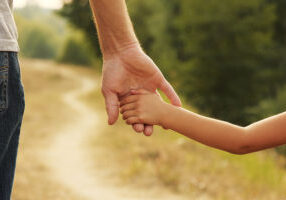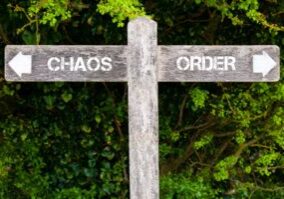Play Lesson
Ashton: Hi, I'm Ashton Gustafson, the host of the Good / True / & Beautiful podcast, and I have the honor of joining Dr. Kelly Flanagan here at the Loveable Mini-Course, which is basically just going to be a few short sessions and lessons with Dr. Flanagan on this wonderful work that he put into the world a few years ago. Those of you that are familiar with Dr. Kelly Flanagan, you know, not only is he a trusted resource, but he brings beautiful love and light and energy into everything that he does. And maybe those of you that have just crossed paths with him, we hope that this invites you to his work, especially the book Loveable. And in the end, we hope it leads to love and light and transformation in your life. So with that being said, let's talk with Dr. Kelly Flanagan.
Ashton: So, Kelly, let's first start and talk through this format that you've chosen for the mini-course. The conversation really that we're about to have. Why exactly did you choose this format for the Loveable mini-course?
Kelly: That's a good question. You know, when I was thinking about recording this, I thought back to a course I took in graduate school called the Philosophy of Science. Big course. Big ideas, things like, how do we know what we know? How do we know what we don't know? What don't we know that we don't, I mean, these sorts of stuff that would twist your brain into a pretzel and the format that they chose for teaching the course was two old buddies got up every night that we had a class and just sat there and talked about the topic for the day. And we got to watch them have a conversation. And it turned this sort of hard, dry material just into this fun experience, just to get to learn it through their eyes and their excitement. And so I thought, okay, who's the buddy that I enjoy talking about this stuff with the most? And you came immediately to mind. And here we are, man, thanks for doing this with me.
Ashton: Honor to be here, man. Super grateful for the chance. And when you talk through this mini-course, I thought it would be a good idea to maybe plant the seed with folks to say, hey, here's kind of where we're going: this is your hope. What is Kelly's hope for the listener? What can they get out of this?
Kelly: You know, it's interesting that you use the word hope there, and it reaffirms my decision to ask you to do this with me. So there's some empirical - I'm a counselor by training a clinical psychologist, but most of my career has been spent doing therapy - and, you know, there's some empirical data that shows that if in the first seven sessions of therapy, the client has not developed a hope and an optimism and an excitement that their problems can be addressed and that their life can get better, it never will in the counseling. Isn't that interesting?
Ashton: Seven.
Kelly: Seven is about approximately the number. So I, personally, when I'm working with somebody about seventh session, I go, how we feeling? Do you think this can get better?
Ashton: Is there possibility.
Kelly: Yeah, right. So I don't think this is a mini-course. I don't think it's going to answer all of the big questions of existence. I don't think it's going to solve all of anyone's problems, but my hope is that that people will come out of it with hope. Like oh, awakenings, like they aren't as big and mysterious and confusing as I think they are. There's an order to them and a sequence to them. And one of my good friends, Katherine Pershey, said that Loveable is a handbook for how to be human, that there's some roadmap here that we can sort of trust and follow. That gives us hope. It sort of gives us a vision for how this can go. So I hope that people come out of this mini-course with a sense of hope and an eagerness and excitement about diving deep into these ideas.
Ashton: If I was going to hand Loveable off to someone and kind of give my pitch, it would be imagine a lighter and brighter life. Imagine losing weight off your shoulders, losing weight, the worry, the concern, an awakening to use your words. Awakening. I think, my hope...Can I have a hope here?
Kelly: Yeah, man, bring it.
Ashton: My hope would be that what this book has done in my life and my family's life, and some of the people that I've been entrusted socially and business-wise is that they would be able to ground themselves in their essence and in doing that find themselves in a state of being that is lighter and brighter. If there's anything we need today in our lives, it is lighter and brighter.
Kelly: Thank you for that good word. I mean, I do think that most awakenings feel like the lifting of a burden we didn't even know we were carrying, and so lighter and brighter that captures that. Thank you.
Ashton: Yeah. Sometimes we just need language. Sometimes we just need a new word, and then the lights come on of, "Oh, I have been feeling that, I just didn't have the language to name what that thing was."
Kelly: Absolutely. Yeah. And there's no greater compliment that I receive regarding Loveable than, "I sort of knew that but you put words to it," right? You name the thing and in the naming, you gave me something that I can actually hold on to and work with and play with. And so, is it Richard Rohr who said that all wisdom is borrowed?
Ashton: All wisdom is borrowed. Steal like an artist.
Kelly: Steal like an artist, and what we've done here with the ideas that we're going to dig into in this mini-courses is we've taken some of the most important ideas that people have been talking about forever, and we're just putting them together in a particular way and helping people to see life through that lens in a way that hasn't really been put together that way before.
Ashton: Yep. I know your mission statement above the fold on your website is to walk with people through the three essentials of a truly satisfying life and so those three essentials, they're really going to be the heart of what we're getting into in this mini-course. You want to share a little bit while you've chosen those three particular essentials?
Kelly: Yeah, absolutely. I guess in a way, I don't feel like I've chosen them. I feel like they've chosen me. Or they've chosen humanity. They've chosen us. As a therapist, you start to realize that when someone comes in and they present you with their big problem, their big problem falls into one of three categories. It's either an identity issue. They're saying, I need to believe in myself again. I need to rediscover my sense of confidence, my self-esteem, my sense of worthiness. That's number one. Or they're saying, Can you help me with my relationships? Like, I don't know how to show up authentically? I don't know how to deal with conflict. I don't know who my people are or where I belong. Number two. And then number three is, What am I here for? Like, what's my path? What direction should I be going? I need more of a sense of purpose is the third one. And so for me, when I look around at everything - any movie you're watching, any book you're reading, anything that you're sort of taking in that is trying to capture what it means to be human - is addressing one of these three things: worthiness, belonging and purpose. And so my thought was, maybe what we can do for the first time is instead of writing another book about worthiness or another one about belonging or another one about purpose, is write one about all of them and how they fit together and how the way they fit together can begin to give us a path forward.
Ashton: Jazz trio.
Kelly: The Jazz Trio of Life. That's right. You got it.
Ashton: I love it. So as we venture out of this kind of intro here and maybe into lesson two, what can we expect to learn in lesson two about worthiness? The first stop.
Kelly: Well, worthiness is the first stop for a reason, number one. I remember in the midst of writing Loveable, I was speaking with my agent at the time who started teaching me how to write a book for the first time. And she said, okay, Flanagan, you keep sending me these three ideas, worthiness, purpose and belonging. Tell me more about that. And I said to her, no, no, no, it's not worthiness, purpose, and belonging. It's worthiness, then belonging, then purpose. That's the order they have to go in for us to grow and be transformed and healed. And she said, well, you should you should talk about the order then, because that's important what you just said to me. So the order is important. We're going to start with worthiness, because worthiness is the foundation for belonging and purpose. If we are not living from a sense of enough-ness from a sense of belovedness, then we don't have the permission, the confidence or the safety to show up authentically in our relationships and therefore cultivate true belonging, or the boldness and courage to pursue the things that we're here to do. So we put worthiness first. We're going to dig into this next lesson, we're going to dig into what is worthiness? How do we recover it? How do we get distracted from that process of recovery? What does it look like when we actually begin to recover our sense of worthiness? And how does that begin to form the foundation for cultivating a sense of belonging in our lives? So I'm looking forward to this next one.
Ashton: Right on, me too, man. Well, thank you guys for listening. It is kind of first overview of the Loveable Mini-Course, and I hope you guys come back and check us out in lesson two, as we talk about worthiness: it isn't earned, it's remembered.





